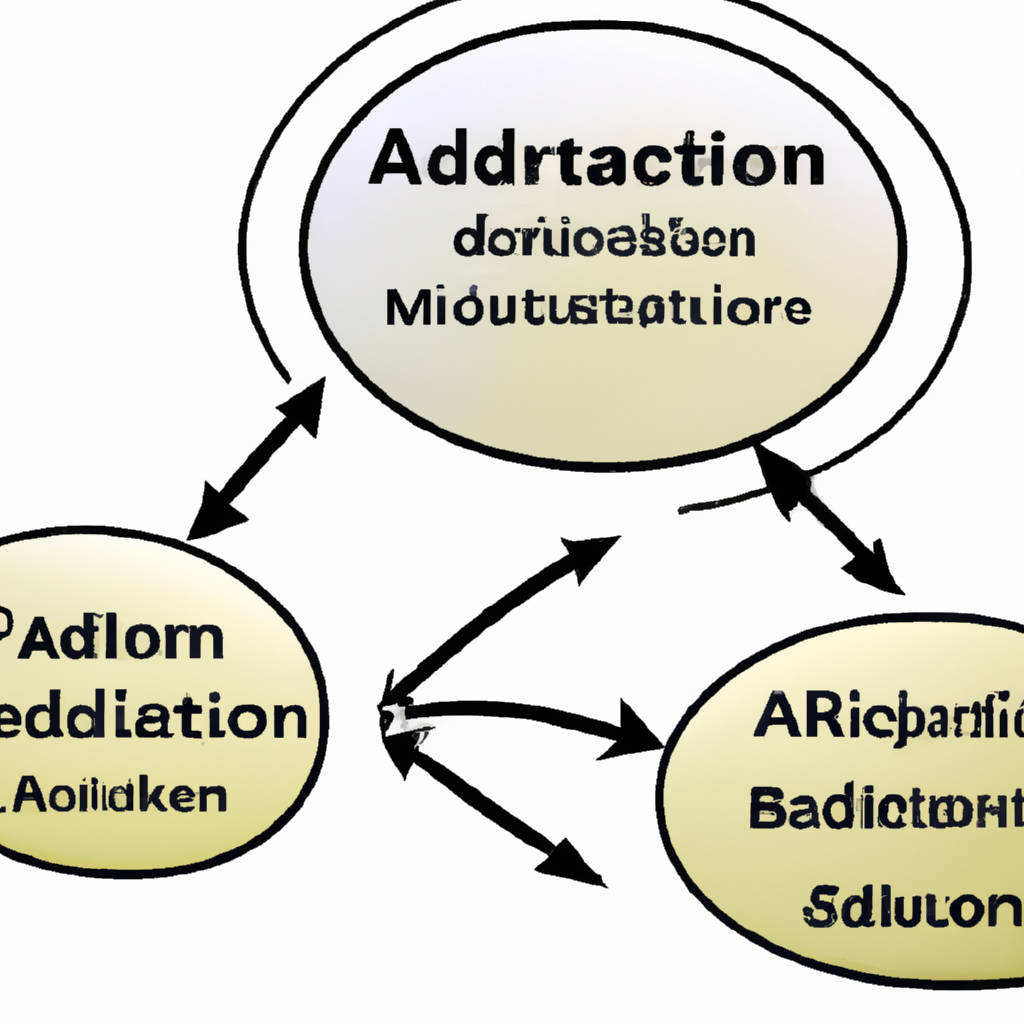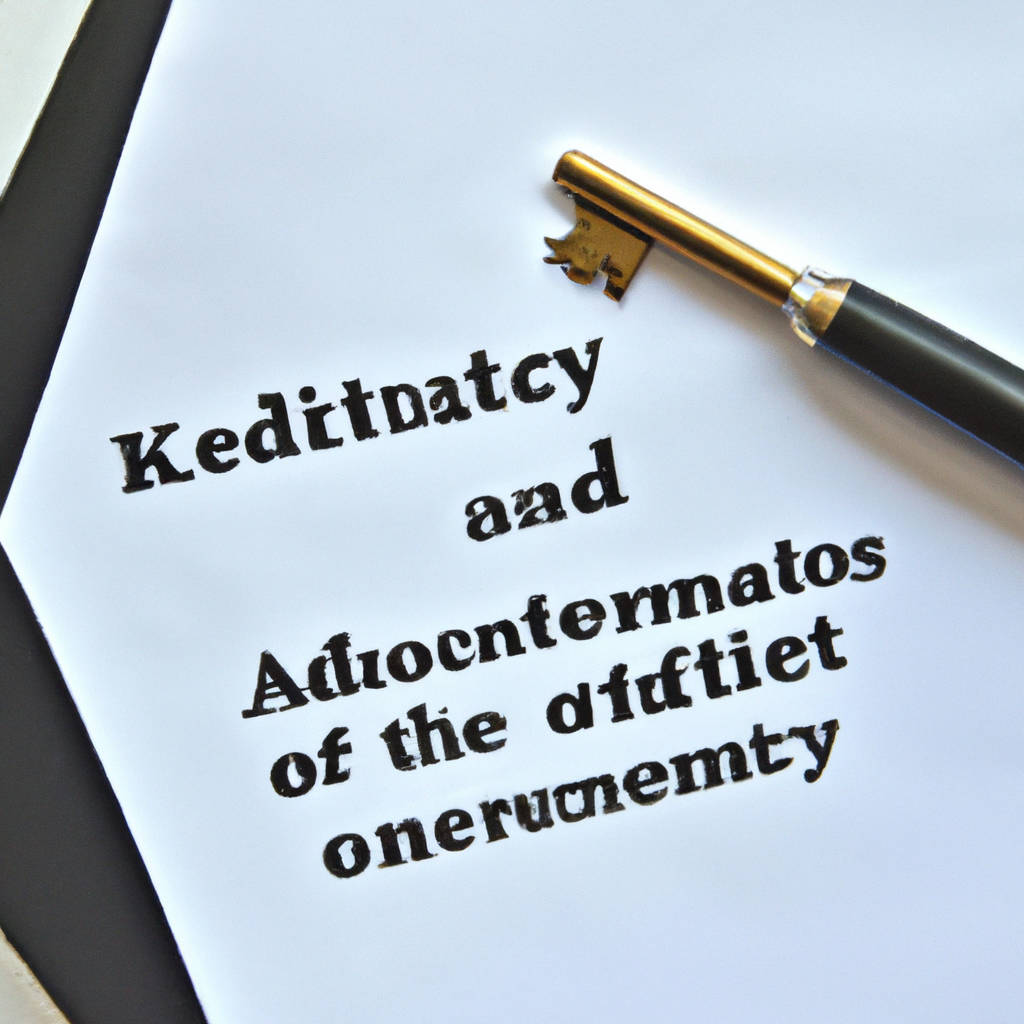Mediation and arbitration are two distinct forms of conflict resolution that are commonly used in a variety of scenarios. Both are alternative methods to litigation and aim to resolve disputes in a less formal, more cost-effective, and faster way. Mediation involves an impartial third party, known as a mediator, facilitating communication between the conflicting parties to help them find a mutually agreeable solution. The mediator assists the parties in negotiating and reaching a resolution, but they do not have the power to enforce any solution. On the other hand, arbitration involves an arbitrator, who acts much like a judge.
The arbitrator listens to both sides, examines evidence, and then makes a decision, which is typically binding and enforceable. These methods are often used in business disputes, family disputes, and labor disputes. They have the advantage of being flexible, confidential, and allowing the parties to maintain control over the resolution process. However, they also have limitations, including the potential for power imbalances, lack of a formal evidence process, and the difficulty of appealing an arbitration decision. Both mediation and arbitration require the parties to have a genuine desire to settle their dispute and a willingness to participate in the process.

Definition and Purpose: Understanding the Core Concepts
Definition and purpose are fundamental concepts that form the backbone of any process, structure, or ideology. The concept of definition refers to the precise meaning of something. It’s the framework that allows us to comprehend and interpret different aspects of life, be it an object, an idea, a system, or a phenomenon. It is an essential tool in the communication process, ensuring shared understanding and reducing the likelihood of misconceptions.
On the other hand, the concept of purpose pertains to the reason or intent behind an action, existence, or creation. It acts as the driving force that motivates individuals or organizations to strive towards a particular goal. It is the glue that binds an action to its outcome, providing direction and creating a sense of meaning.
Understanding these core concepts is crucial as they serve as building blocks for more complex ideas and theories. They are the lenses through which we view, analyze, and make sense of the world around us. If definition provides a clear image of what something is, purpose gives it context and relevance.
In the realm of academia, for example, the definition of a subject matter allows students to grasp its essentials, while the purpose of studying it provides the motivation and direction. In business, a clear definition of an organization’s goals and strategies ensures all members are on the same page, while understanding the purpose behind these goals helps to align individual efforts with the organization’s overall direction.
Moreover, these concepts are not static but rather dynamic and evolving, changing as our knowledge and understanding expand. Thus, the continual exploration and understanding of definition and purpose is integral to personal growth and societal progress. In essence, they not only shape our perception and actions but also form the foundation of our collective knowledge and wisdom.
Key Differences: Contrasting Mediation and Arbitration
Mediation and arbitration are both popular methods of alternative dispute resolution and while they share some similarities, they are fundamentally different in their approach and outcomes. Mediation involves a neutral third party, known as a mediator, who aids the disputing parties in reaching a mutually agreeable resolution. The mediator’s role is not to make a decision, but to facilitate communication and propose solutions, with the final decision resting solely with the parties involved. It is a non-binding process that prioritizes cooperation, compromise, and preservation of relationships.
On the other hand, arbitration is a more formal and structured process where the arbitrator, akin to a judge, listens to each side’s argument and makes a binding decision. The parties involved in the dispute agree to abide by the arbitrator’s decision, which can be enforced if necessary. This method is more akin to a court trial, with the arbitrator playing a similar role to a judge. Despite the formal nature, it is often quicker and less expensive than traditional court proceedings.
In terms of confidentiality, while both processes are private, arbitration has a higher degree of secrecy since the decisions aren’t public record. In mediation, the discussions are confidential but any agreement reached may become part of a public record if it’s used to enforce a settlement.
The choice between mediation and arbitration often depends on the nature of the dispute and the relationship between the parties. Mediation is typically chosen if the parties wish to maintain their relationship and seek a win-win solution. Arbitration is chosen when a definitive resolution is desired and the parties are willing to abide by the decision of a third party. Understanding these key differences is essential when choosing the most appropriate method to resolve a dispute.

Process of Mediation: Steps Involved in Facilitating Resolution
The process of mediation involves several critical steps that facilitate resolution between conflicting parties. The first step is the initiation of mediation where a neutral third party, often referred to as a mediator, is selected to manage the process. The mediator then sets the ground rules for the sessions, ensuring equal participation and respect for all viewpoints. This is followed by the problem identification stage where each party articulates their perspective on the issue at hand, with the mediator ensuring that everyone fully understands each other’s positions.
Later begins the exploration of interests phase, where the mediator helps the parties identify their underlying needs, desires, and concerns. The mediator encourages open communication, allowing the parties to express their feelings, needs, and fears. This step aims to ensure that each party understands the others’ interests, not just their own.
The fourth step is the generation of options where the parties brainstorm possible solutions to the conflict. The mediator guides this process, encouraging parties to think creatively and collaboratively. The mediator ensures that all options are considered before any decisions are made.
Next is the evaluation of options. Here, the parties weigh the pros and cons of each solution, considering the implications of each option on their interests. The mediator helps to facilitate this process, guiding the parties to consider each option fairly and objectively.
Once the parties agree on a solution, the mediator helps to formalize the agreement. They work with the parties to outline the specifics of the resolution, ensuring that all parties understand and agree to the terms.
Finally, the process concludes with the implementation of the agreement. The mediator often assists in this process, ensuring that the parties adhere to the terms of the resolution.
Throughout the entire mediation process, the mediator maintains a neutral role, facilitating communication, encouraging mutual respect, and ensuring a fair process. The goal of mediation is not to determine who is right or wrong, but rather to create a mutually beneficial resolution for all parties involved.
Process of Arbitration: Steps Involved in Formal Adjudication
The process of arbitration is a formal adjudication method utilized to resolve disputes outside of the traditional court system. This course of action involves several essential steps, beginning with the mutual agreement of involved parties to submit their dispute to a neutral third party, known as an arbitrator. Typically, this agreement is pre-established in a contractual clause, but it can also be decided upon after the dispute arises. Following this agreement, the selection of the arbitrator, who should be unbiased and skilled in the relevant area, is carried out. Once appointed, the arbitrator will organize a preliminary meeting to decide on the procedures, timelines, and rules that will govern the arbitration process.
The next step includes the exchange of statement of facts by the parties involved, along with any supporting evidence. These statements usually outline each party’s understanding of the dispute, the issues to be determined, and their respective remedies sought. Thereafter, a hearing is held where each party presents their arguments and evidence. During this hearing, the arbitrator may question the parties for clarification and to ensure a comprehensive understanding of the dispute. After the hearing, the arbitrator deliberates and makes a final decision, known as the ‘award’.
The award is typically binding and enforceable, often having the same effect as a court judgment. It should be noted that the arbitration process is usually confidential, providing a level of privacy not offered in traditional court proceedings. The flexibility, speed, and cost-effectiveness of arbitration have made it an increasingly popular method of dispute resolution, especially for commercial entities. However, it’s important to understand that the ability to appeal an arbitration award is very limited, unlike in the traditional court system. Therefore, parties should consider these factors carefully before deciding to go through the arbitration process.

Benefits of Mediation: Advantages for Resolving Disputes Amicably
Mediation offers a plethora of benefits for those seeking to resolve disputes in a amicable manner. One notable advantage is its emphasis on fostering communication between parties, enabling them to express their feelings, thoughts, and concerns openly. This facilitates mutual understanding and paves the way for an agreeable resolution. Moreover, this process is less adversarial compared to other dispute resolution methods, reducing stress and hostility. Mediation also fost good relationships between parties, as it encourages collaboration and compromise, rather than promoting a win-lose dynamic. This is particularly beneficial in situations where parties have to maintain ongoing relationships, such as in family or workplace disputes.
Another significant benefit of mediation is its flexibility. The process is designed to suit the unique circumstances of each case, rather than following a rigid procedural framework. This allows for creative and tailor-made solutions that can address the underlying issues more effectively. Furthermore, mediation is generally quicker and less costly compared to other methods, saving parties both time and resources. The process is also confidential, preserving the parties’ privacy and dignity.
In addition, the mediator plays a crucial role in facilitating the process. They are trained professionals who guide the parties towards a resolution, while ensuring that the process remains balanced, fair, and respectful. The mediator does not impose a decision, but assists the parties in reaching a resolution that they both find satisfactory. This increases the likelihood of compliance, as the resolution is self-determined rather than imposed.
In summary, mediation offers numerous benefits for resolving disputes amicably. It fosters communication, promotes mutual understanding, preserves relationships, provides flexibility, saves time and resources, ensures confidentiality, and increases the likelihood of compliance. Therefore, it is a valuable tool for addressing and resolving conflicts in a variety of contexts and settings.
Benefits of Arbitration: Advantages for Binding Decision-Making
Arbitration offers an efficient and cost-effective way to resolve disputes, often providing a faster and less formal procedure compared to traditional court proceedings. One of its primary benefits is its finality; since arbitration often results in a binding decision, parties are encouraged to adhere to the outcome, reducing the likelihood of endless appeals. This binding nature of arbitration often promotes a definitive resolution of disputes, fostering certainty and predictiveness for all parties involved.
Furthermore, arbitration allows for flexibility in decision-making. The arbitrator or arbitration panel can often tailor their approach to the unique circumstances of the dispute at hand, considering the specificities of the situation beyond what might be possible in a conventional court setting. This flexibility extends to procedural matters as well, allowing parties to have more control over the process and potentially saving significant time and resources.
Moreover, confidentiality is another significant advantage of arbitration. With most arbitration proceedings held in private, the details of the dispute and the final decision can remain confidential, safeguarding reputations and maintaining business relationships.
Finally, with the increasing complexity of commercial and personal transactions, arbitration allows for the selection of arbitrators with specific expertise in the relevant field, ensuring that the decision-makers fully understand the intricacies of the matters in dispute. This expertise can lead to more informed and accurate decisions, contributing to the credibility and acceptance of the outcome.
In conclusion, the binding nature, flexibility, confidentiality, and expertise offered by arbitration make it an attractive alternative dispute resolution method. Its benefits extend beyond mere cost and time savings, promoting certainty, predictability, and privacy in the resolution of disputes.